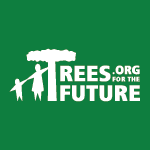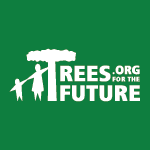Trees for the Future Forest Garden Approach
At Earthborn Holistic, we’re on a mission to not only love pets, but also love the planet we live on. From recyclable packaging to our UPCs for Trees Program, we try our best to do our part to help save the planet any way that we can–and we’re not alone. We’re giving Trees for the Future the reins so you can learn more about the innovative organization behind our highly successful UPCs for Trees Program.
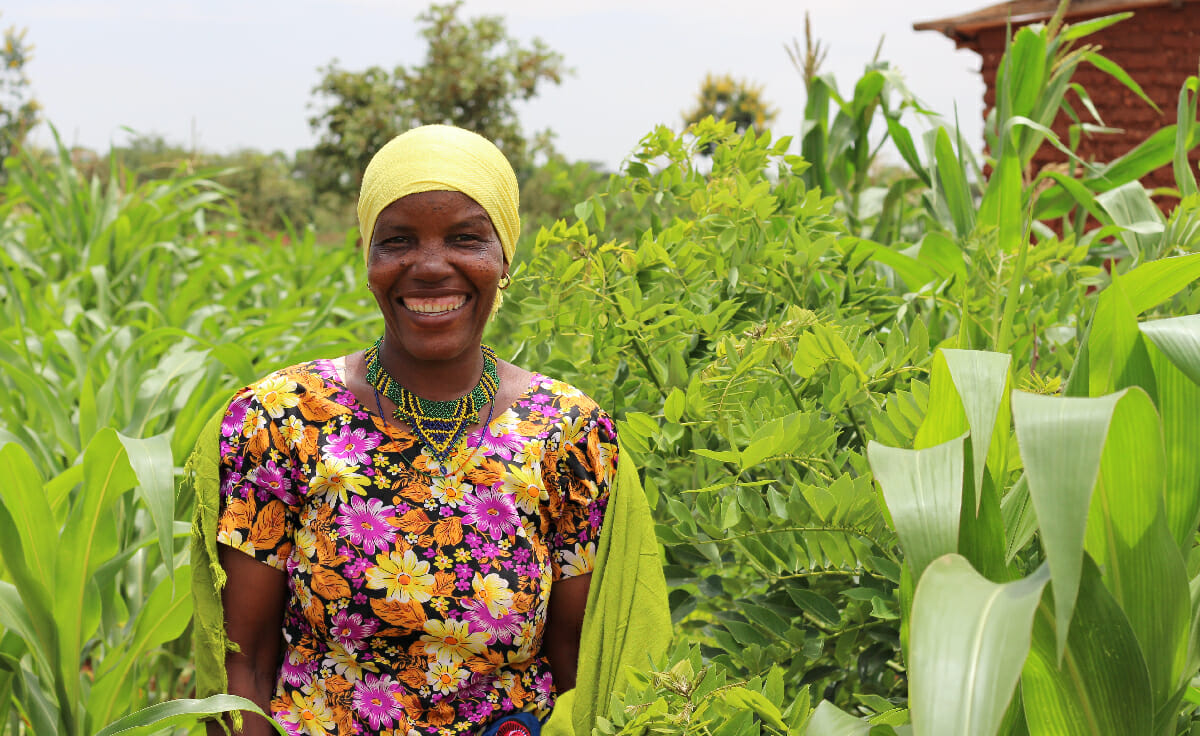
Our Mission
To end hunger and poverty by training farmers to regenerate their land.
The Problem
We lose trees at a rate of 50 soccer fields per minute as our food systems destroy our ecosystems. Most of this degradation occurs in the developing tropics of Africa, Latin America, and South and Southeast Asia where hundreds of millions of chronically-hungry, smallholder farming families unknowingly use destructive and short-sighted agricultural practices that further degrade their communities trees, soil, water and biodiversity, making them even more likely to migrate and more vulnerable to the climate changes that lie ahead. It becomes a cycle.
Our History
In the early 1970’s, Dave and Grace Deppner served as volunteers in the Philippines, where they witnessed the human tragedy brought on by illegal logging and unsustainable land management systems. Working with community leaders in nearby villages, the Deppners found a way to offer hope. They revitalized lands by providing farmers with tree seeds, technical training, and on-site planning assistance.
After returning to the U.S. from their overseas assignments they continued what they had started, communicating by mail with the project leaders and providing seeds, information, and training materials. On August 14, 1989, Trees for the Future was officially incorporated as a public charity.
Since then, TREES has planted over 180 million trees and gained experience in solving the problems people face to survive on degraded lands in more than 60 nations across Asia, Africa, and the Americas.
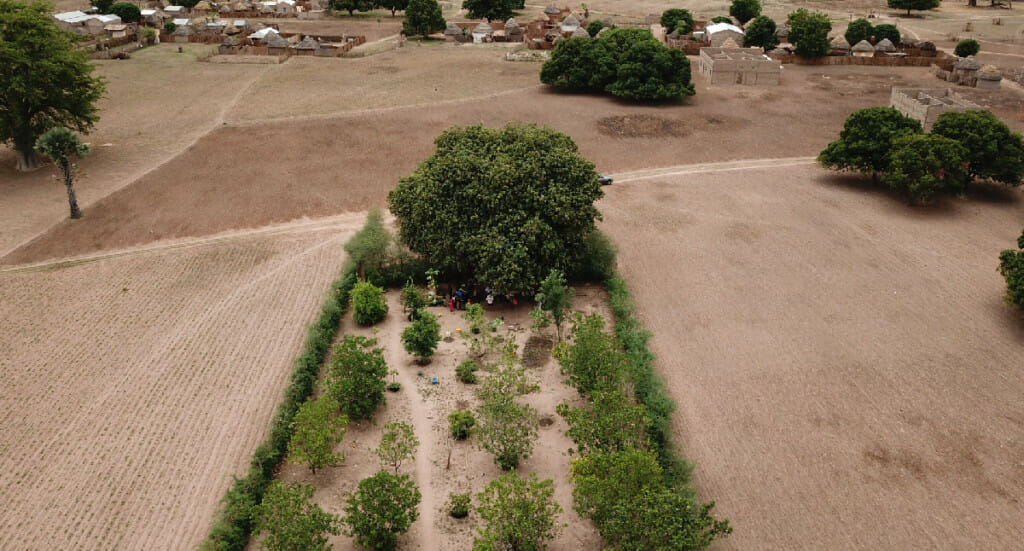
Our Solution
The Forest Garden Program is a simple, replicable, and scalable approach with proven success. How? It starts with trees. Through our 4-year training program, called the Forest Garden Approach, farmers plant thousands of trees that protect and bring nutrients back to the soil. This helps farmers grow a variety of fruits and vegetables. Forest Garden farmers gain increases in income and access to food, even in the first year, all while improving the environment.
Before Launch: Identification
We identify ~200 farming families in need, select training technicians, and prepare materials for launch.
Years 1-2: Protection
Farmers plant ~2,500 fast-growing trees and bushes that create a protective and soil-stabilizing barrier.
Years 2-3: Diversification
Farmers learn to diversify their field with a vegetable and fruit tree portfolio to meet the family’s priority nutritional and selling needs.
Years 3-4: Optimization
Farmers learn about advanced Forest Garden management and conservation to optimize the long-term health and productivity of the land.
End of Year 4: Graduation
We implement a sustainability strategy for the future with each farmer. A graduation ceremony is held to celebrate the farmers’ program completion.
Where We Work
We are currently working with thousands of farming families across five countries in Sub-Saharan Africa. Our focus is on the implementation of Forest Garden Programs in Cameroon, Kenya, Senegal, Uganda, and Tanzania, as these are areas where we are having the biggest impact and seeing profound results.
We have offices and dedicated staff in Kenya, Mali, Senegal, Uganda, and Tanzania. We work in Cameroon, Central African Republic, Chad, and Gambia through our collaborative partnerships. We also have dedicated Training Sites, offering Forest Garden demonstrations to the public.
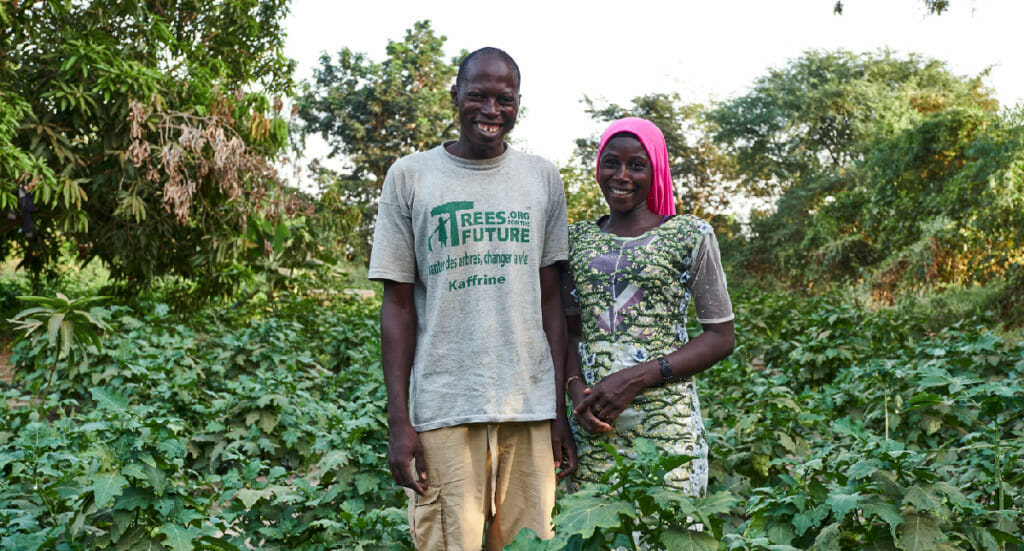
Our Training Sites
Trees for the Future’s Training Sites are model Forest Gardens that demonstrate the Forest Garden Approach in action. Each site is unique, but they are all serving the same purpose – to provide staff, farmers, and partner organizations with an opportunity to see different agroforestry techniques and how different species and crops can be grown in the Forest Garden system.
Access For All
Training is essential to the sustainability of our work. In our many years of research and development, we have found the ultimate methodology to empower communities and project leaders that ends poverty, hunger, and deforestation. The Forest Garden Training Program was designed to bring the Forest Garden Approach impact to scale. We hope to share the Forest Garden Approach with as many people around the globe as possible in an effort to meet our goal as fast as possible.
Our Impact
Since 1989, we’ve planted 19,095 forest gardens, helped 152,403 people, planted 191,000,000 trees, and restored 26,768 acres. Learn about how Forest Gardens are changing everything more about our impact in our 2020 Impact Report.
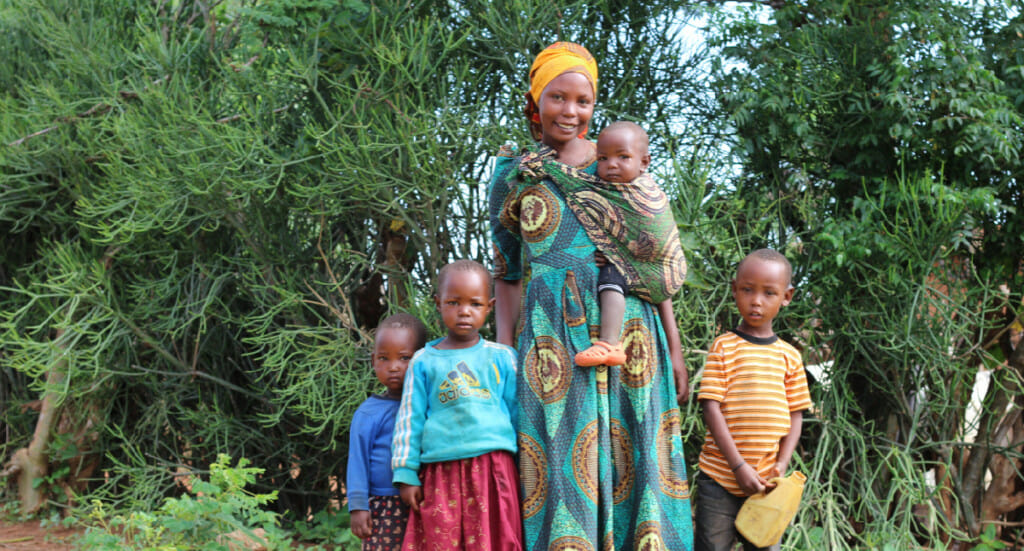
Our Strategic Growth Plan
Trees for the Future will break the cycle of poverty and hunger for 1 million people by planting 500 million trees in 125,000 Forest Gardens by 2025. To that end, TREES will execute on three programmatic pathways: expansion of existing Forest Garden projects, collaboration with partner organizations, and replication of our model through the Forest Garden Training Center.
Want to help us plant even more trees through Trees for the Future? Learn more about our UPCs for Trees Program to see how you can help.
